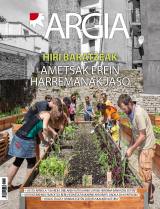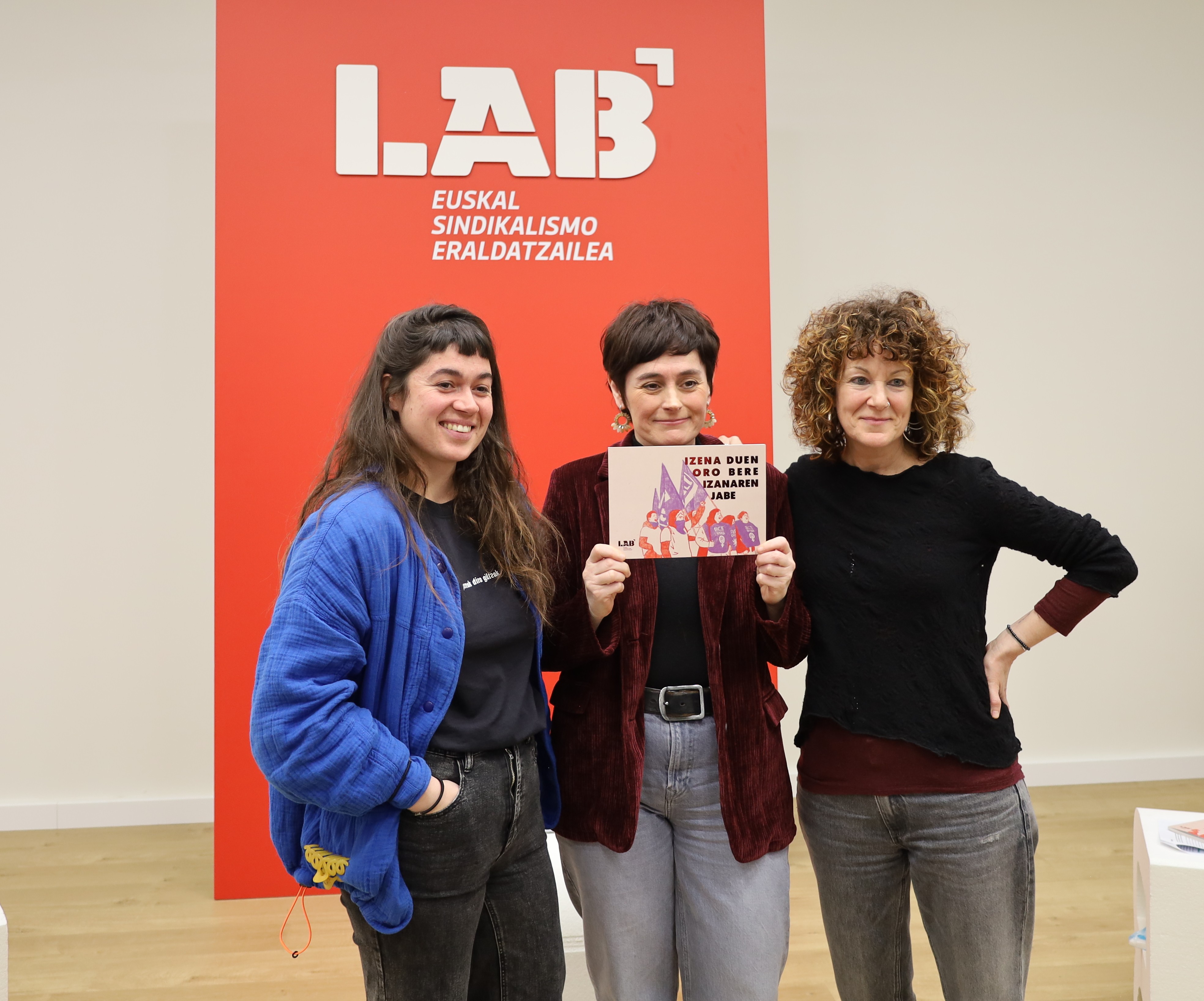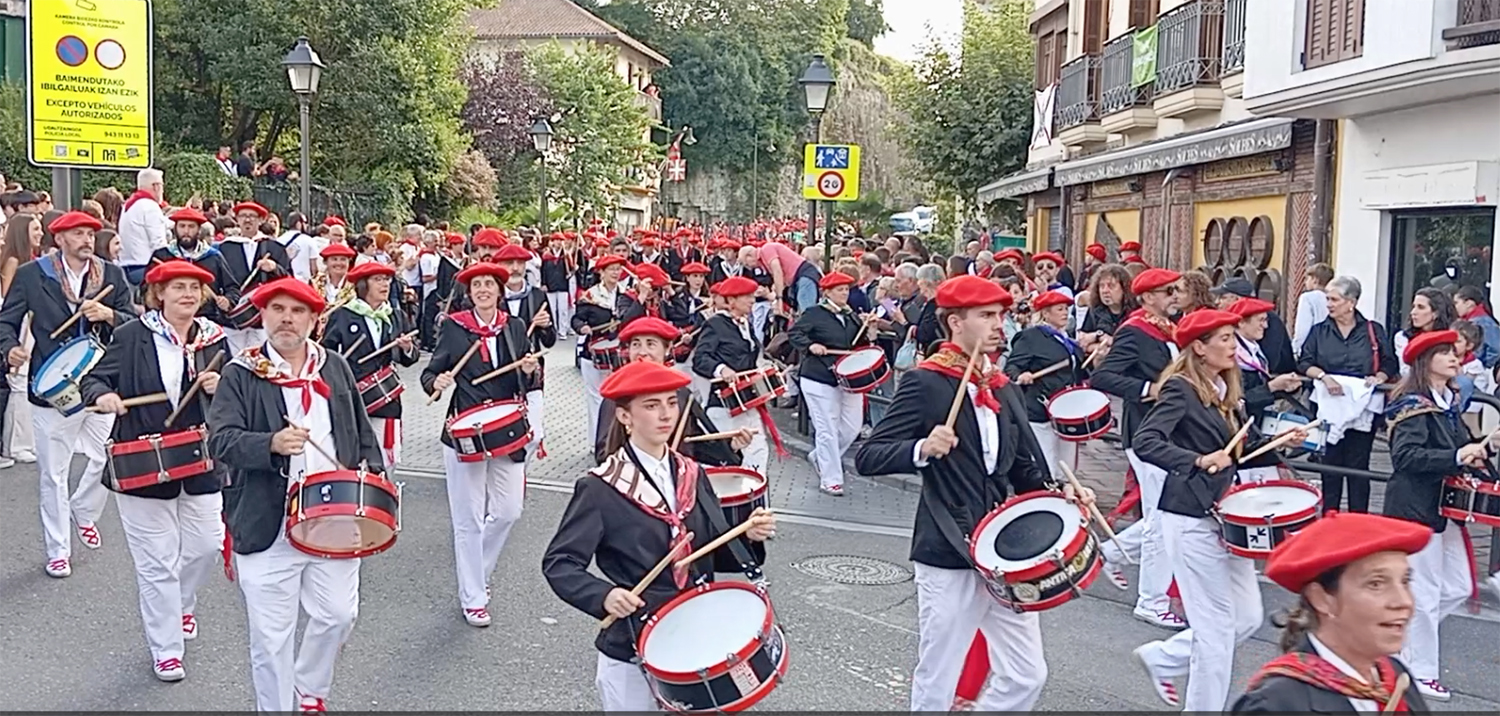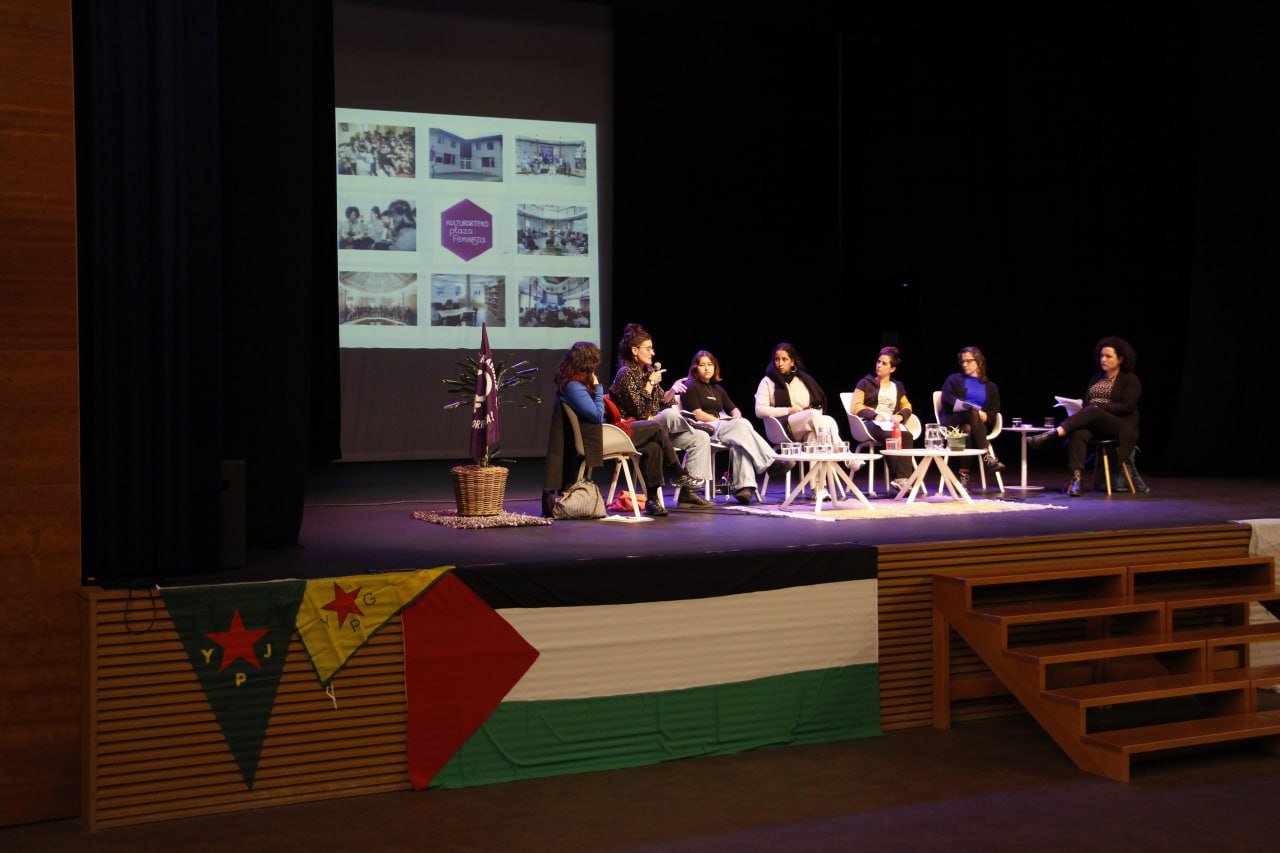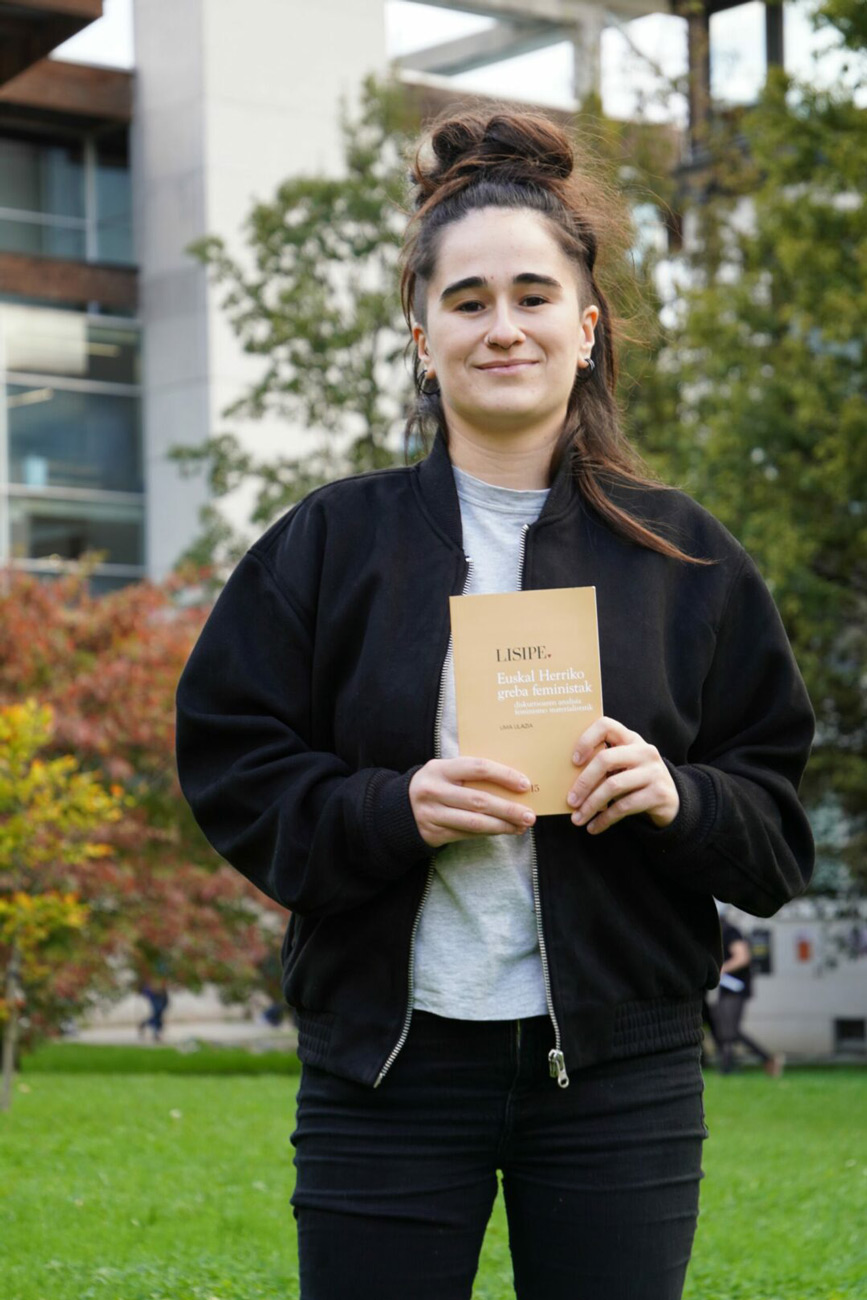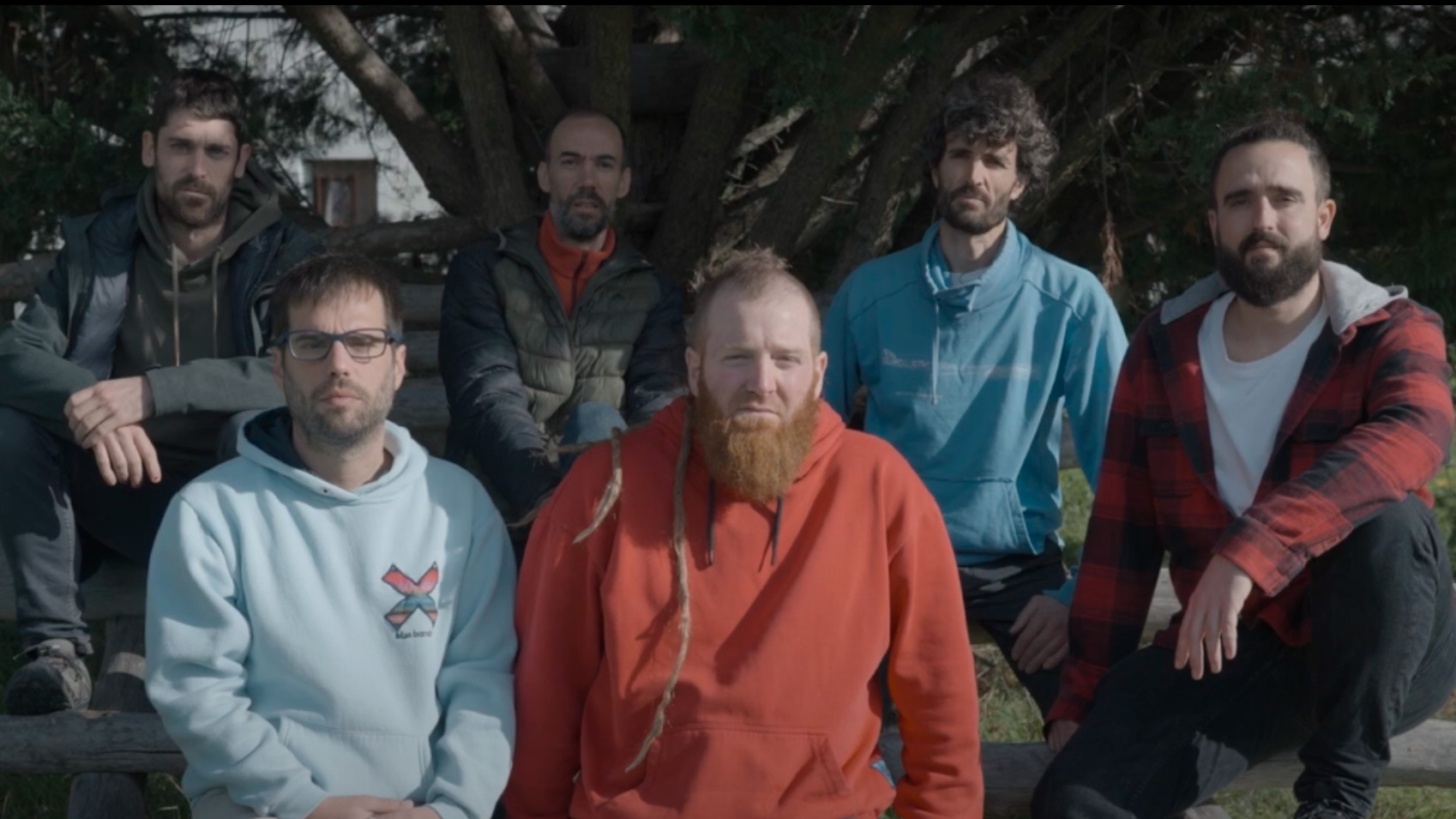"All the challenges that feminism has set in an era we still have."
- Vitorian Xane Kreckelbergh is one of the most well-known faces of the feminist movement of Ipar Euskal Herria. What seems less so in recent times, because it has taken the step of leaving its responsibilities. It was not easy for him. On the one hand, because in this society that has to change so much, it cannot sit still, and on the other, because of the small number of militants in Iparralde to bring the feminist struggle. It has given us time to talk about feminism and its trajectory.

You just left the responsibilities you had in the Dion Wives Association.
Ever since I started military in 1973, I've always been in the field of feminism. I knew I had to leave the responsibilities, but it was hard for me, seeing that there was no young man for the continuation. I remember a young comrade told me that while I was there, I wouldn't have to worry, because I didn't need to. Paf! Association in Baiona, Ubela Brigade at the festival... Seeing that some young people were joining feminism, I moved from word to action. I left the presidency in 2014 and other responsibilities last year. I decided not to do anything, to be a humble partner.
You're worried that there are few young people in feminism. It's not the same in Hego Euskal Herria.
How is it so different in the South? Why have they experienced more repression? Because it's easier for them to be citizens? I don't know. I don't think it's because political parties have given more importance to feminism. Whether elected officials, trade unionists or not, the wives entered militarily in several camps. Here we needed a law to force men to leave the job. What are more machistas there? No, I think they're the same here and there.
You are not many in your generation either.
It's true. During 24 hours a day, some of the Wives prioritized other issues. But always supporting feminism. The spirit of the consumer society entered our minds and the militancy weakened. I think our elders and those next door thought the battle was a victory. Between 40 and 70 years there is a big gap. It is currently under 30 years of age who are engaged in this struggle in the French Basque Country.
What does militancy bring you?
If I have that need to change society, I don't admit silence. I have to be raped so as not to get involved in the initiatives. I say to myself, “Xane, it’s not your age, leave others, don’t go to the front line.” In many associations, the same thing happens: older adults take a place and do not leave their offspring. They must be given room.
We tend to partner with Paris and big cities in May of 1968. Did you feel in the rural world of Ipar Euskal Herria?
At the time, I was a student at Donapaleu. We don't live like in Paris or in the big cities; we took ideas, but we entered them a little bit later. From what was happening in Paris, Bordeaux and Bilbao, we followed our lives, with our reflections, debates and demands. We were very practical, we wanted to change minds through training or debate. We didn't spend that much time reflecting with each other. At the time, the priorities were the need for childcare and the acquisition of contraception.
Changing mindsets could be difficult.
People here think something but say nothing! Somewhere it's good ... Ignoring what they thought, we stayed in our house. In any case, we were sure we were right. Today we know that some ideas changed because we were heard. It's still difficult, everyday machismo is always there. What to do. For example, the word “feminism” does not appear in EH Bai’s electoral leaflets. Why not? I do not understand.
What are the main challenges today?
The situation has improved, but very smoothly. I believe that all the challenges we have set ourselves at the time are there, whether in different forms or in different dimensions. I will cite two. On the one hand, you have earned your divorce, but you have to have money to do so. My relatives who have divorced are in poverty. Furthermore, childcare facilities are not enough. If there were no mom and dad, young people wouldn't be able to live. Lack of supply. Young people do not claim anything, it is not normal. The new challenge is that of the Catholic fundamentalists. They're spreading, it's dangerous. On the other hand, when it comes to sexuality, young people raise the issue differently. When I hear Bilgune Feminist, I'm amazed and rejoiced. I was fascinated by Ondarroa's meetings.
Bilgune Feminist has accompanied you.
Bilgune Feminist raises my moral. If at the time Egizan or later Bilgune Feminist had not been there, I don't think we would have held him back. They ask real questions, really profound questions. At the time, homosexuality was talked about, but it was left out of us. Today, if we were young, homosexuality would be an opportunity for life and love.
Feminist coordination has been created in the Herri Elkargoa to demand parity and feminism.
The idea started with Say, the wives. Things will change in the Community as well. When? I don't know. It has been proposed to them, it has asked them about the signing of the European Charter for Equality. I don't understand how in 2017 we can be so reluctant.
“68ko Maiatzaren biharamunean ideia berriak loratu ziren Ipar Euskal Herrian ere. Feminismoarekin hori gertatu zen. Baina maleruski, zabalduz joan den kontsumismo giroak printzipio anitz hil zituen. Funtsean, orain berriz pizten ari diren balore horiek berak. Badirudi zola hunki behar dugula berriz balore humanisten, elkartasunaren edota xumetasunaren garrantziaz ohartzeko”.
This wedge that the announcement on the radio Euskadi to replace the bathtub with a shower encourages the commencement of the works in the bathroom of the house. A simple work, a small investiture and a great change are announced. There has been a shift in toilet trends and a... [+]
Zalantza asko izan ditut, meloia ireki ala ez. Ausartuko naiz, zer demontre! Aspaldian buruan dudan gogoeta jarri nahi dut mahai gainean: ez da justua erditu den emakumearen eta beste gurasoaren baimen-iraupena bera izatea. Hobeto esanda, baimen-denbora bera izanda ere, ez... [+]
Goldatz talde feministak antolatua, ortziralean, urtarrilaren 3an, Jantzari dokumentala proiektatuko dute Beralandetan (17:30ean) eta biharamunean, urtarrilaren 4an, Berako bestetako tradizioak aztergai izanen dituzte Maggie Bullen antropologoarekin leku berean (10:30).
Ander Magallon, Mikel Irure eta Xabier Jauregi Metropoli Forala saioan egon dira maskulinitate berrien inguruan mintzatzen.









